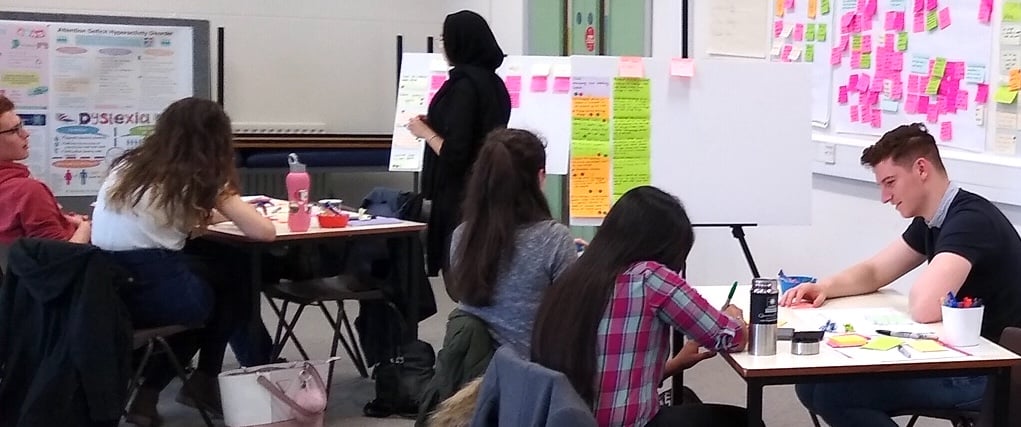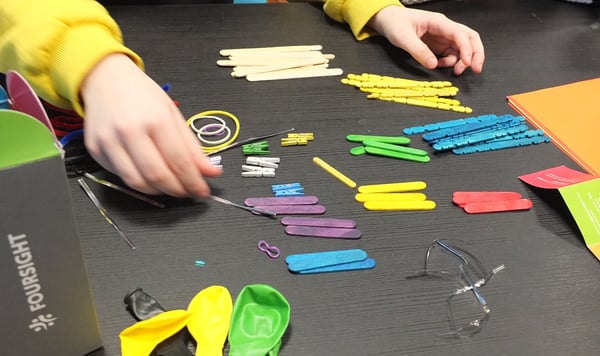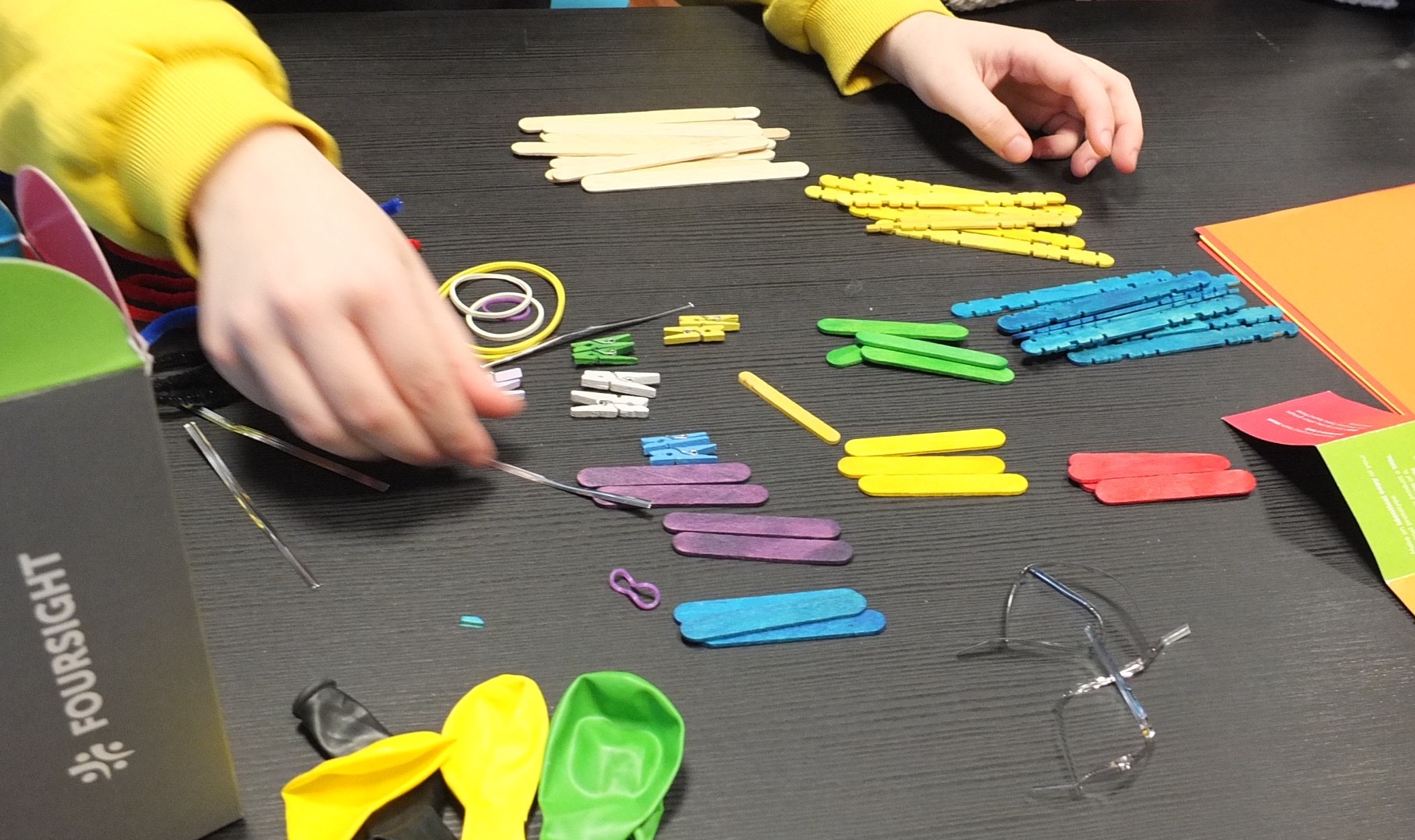Patricia Flanagan is an innovation consultant, helping students and community members in Northern Ireland develop a common language and framework for solving big, complex problems.
At Queens University Belfast, she conducts intensive four-day innovation boot camps where students come to develop the skills they need for their future careers. To raise the stakes, she enlists the help of local organizations (e.g. the Police Service, the Institute of Chartered Accountants, PwC, Allstate, Ernst and Young and KPMG), who are invited by the University to be “clients” for the students. They work together to come up with a realistic but manageable real-life problem for the students to solve.
Design Thinking and FourSight
The students apply design thinking to address the challenge, and in the process, Flanagan helps both students and clients develop an understanding of what drives innovation in organizations. FourSight is at the heart of it. “Everyone does the FourSight profile before we start, both students and clients,” she says. “It gives me invaluable information about who I have in the group, so I can tailor the work to the people in the room.”

Building Diverse Teams
Flanagan deliberately creates diverse teams, bringing together students from law, business, engineering, the arts, and economics, and then uses their FourSight profiles to create mixed preference teams.
Customizing Curriculum to Students
FourSight is also a crucial part of her program design. “I use the profiles to plan how to keep the energy up for the four days, and I know where they are likely to need extra support to stay energized.” For example, Flanagan knows that teams with a low preference for ideation will need extra support to keep the energy up during idea generation. If they are Clarifiers, she knows there is no point in moving forward until they’ve had a chance to ask whatever questions they need to ask. “They’re not trying to be annoying,” she says. “They just need their questions answered before they can move on.”
Fostering Creative Problem Solving
In the end, her goal is to stretch their thinking and skills, “so that they have tools for parts of the process that don’t come as easily to them,” she says. “I give them the skills to be able to tackle whichever part of the process we’re in.”

From Self Awareness to Self Management
In her work at Queens University Belfast, Flanagan also discovered an unexpected bonus –understanding their preferences also helped students with their study. “The boot camp helps them to understand how they think, why they get tired at different points in their study, and what kinds of jobs they might like.” They have also found it helpful to understand how they deal with pressure and stress. “I teach them that people go to their preference when they’re under pressure and have a time limit,” she says. “That is incredibly useful information for students at exam time.”
“I worked with a student who was doing a PhD in Chemical Engineering. He did the program twice, basically because he was procrastinating from writing his thesis. And FourSight made so much sense to him and gave him this new self-awareness about why he was procrastinating. I came across him on LinkedIn a while later, and the first thing he listed about himself was ‘Ideator.’ It became part of his identity.”
FourSight at the Core
These days, Flanagan incorporates FourSight into all her programs. “I can’t imagine designing a program now without FourSight. It’s just part and parcel of what I do,” she says. "If you’re working with people on innovation and creative thinking in any capacity, it is an invaluable tool. I don’t do anything without it now.”




